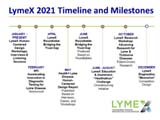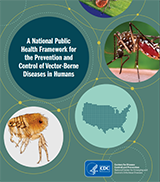202-205-0143
ashmedia@hhs.gov
HHS Releases National Strategic Plan to Address Viral Hepatitis
The U.S. Department of Health and Human Services (HHS) released a national plan to address the serious, preventable public health threat caused by viral hepatitis in the United States. The Viral Hepatitis National Strategic Plan for the United States: A Roadmap to Elimination 2021–2025 sets national goals, objectives, and strategies to respond to viral hepatitis epidemics. Building on three prior National Viral Hepatitis Action Plans over the last 10 years, the Viral Hepatitis National Strategic Plan is the first to aim for elimination of viral hepatitis as a public health threat in the United States by 2030.
This plan serves as a roadmap for stakeholders at all levels and across many sectors, both public and private, to guide development of policies, initiatives, and actions for viral hepatitis prevention, screening, care, treatment, and cure.
“The human and economic consequences of viral hepatitis epidemics are steep. Viral hepatitis is a public health threat that puts people who are infected at increased risk for liver disease, cancer, and death, affects the quality of life for millions of Americans, and costs the health care system billions of dollars annually,” said Admiral Brett P. Giroir, M.D., Assistant Secretary for Health. “The nation is losing ground in the fight against viral hepatitis despite safe and effective hepatitis A and hepatitis B vaccines, and a hepatitis C cure that works after an eight-week course of medicine.”
From 2014–2018 in the United States, the rate of new hepatitis A cases increased by 850%, the rate of acute hepatitis B increased by 11%, and the rate of acute hepatitis C cases increased by 71%. As of 2016, nearly 3.3 million people in the United States were living with chronic viral hepatitis—an estimated 862,000 with hepatitis B and 2.4 million with hepatitis C.
The impact of the viral hepatitis epidemics does not fall equally across all populations. People who use and inject drugs, people with HIV, and people experiencing homelessness are disproportionately impacted by viral hepatitis. Significant racial and ethnic disparities and environmental conditions where people live, learn, work, and play result in an unequal burden of viral hepatitis in Asian and Pacific Islander, American Indian/Alaskan Native, and non-Hispanic Black communities.
Coordinated by the Office of the Assistant Secretary for Health (OASH) through the Office of Infectious Disease and HIV/AIDS Policy (OIDP), the Plan was developed by more than 20 federal agency partners. Stakeholders and the public had significant input into the development of this plan, through a variety of opportunities for public comment.
The Viral Hepatitis Plan focuses on hepatitis A, hepatitis B, and hepatitis C—the three most common hepatitis viruses that have the largest impact on the health of the nation. It identifies populations that experience the highest burden of viral hepatitis based on nationwide data so that federal agencies and other stakeholders can focus their resources to realize the greatest impact.
The Viral Hepatitis Plan includes five goals to guide planning efforts:
- Prevent new viral hepatitis infections.
- Improve viral hepatitis-related health outcomes of people with viral hepatitis.
- Reduce viral hepatitis-related disparities and health inequities.
- Improve viral hepatitis surveillance and data use.
- Achieve integrated, coordinated efforts that address the viral hepatitis epidemics among all partners and stakeholders.
For More Information
To learn more about the Viral Hepatitis Plan, visit https://www.hhs.gov/hepatitis/viral-hepatitis-national-strategic-plan/index.html. For more information about viral hepatitis prevention and treatment, visit https://www.cdc.gov/hepatitis/index.htm.
Like HHS on Facebook, follow HHS on Twitter @HHSgov, and sign up for HHS Email Updates.
Last revised:




